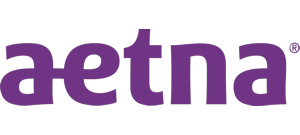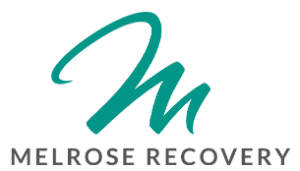Librium
Librium – Welcome to Melrose Recovery, your pathway to transformation and healing. Located in the vibrant heart of Los Angeles, California just moments away from iconic Hollywood and the picturesque beaches of Santa Monica and Venice, we are dedicated to changing lives. Since 2015, our comprehensive Librium drug treatment approach encompasses detoxification, residential care, and aftercare services, all tailored to meet each individual’s unique needs on their recovery journey.
Led by a compassionate team of addiction professionals and counselors, we offer a range of therapy programs designed to support and guide individuals suffering Librium medication abuse toward lasting sobriety. At Melrose Recovery, we believe in the power of personalized care and diverse treatment options to pave the way for a brighter future.

What Is Librium and What Is it Used For?
Librium is classified as a Schedule IV controlled substance under the Controlled Substances Act. It is primarily prescribed for the short-term treatment of anxiety disorders, managing symptoms of acute alcohol withdrawal, and helping patients relax before surgery.
Understanding Librium: Uses, Risks, and Treatment
Librium is the brand name for chlordiazepoxide, a medication in the benzodiazepine class. It’s primarily prescribed to treat anxiety and insomnia, as well as to manage alcohol withdrawal symptoms during detox. In some cases, it may also be used to relieve anxiety before surgery or to address conditions like muscle tension, seizures, and irritable bowel syndrome (IBS).
Librium is typically available in capsule form, with doses of 5 mg, 10 mg, and 25 mg. The substance itself is a white, crystalline compound, enclosed in multicolored capsules meant to be taken orally.
How Librium Works
Librium acts on the central nervous system by enhancing the effects of GABA (gamma-aminobutyric acid), a neurotransmitter that helps reduce brain activity. By promoting calm and reducing anxiety, it provides relief that can last anywhere from 5 to 30 hours, depending on dosage and individual metabolism. Its half-life—how long it stays in the body—also ranges between 5 and 30 hours, classifying it as an intermediate-to-long-acting benzodiazepine.
While Librium may be prescribed for long-term use in some cases, it is more commonly used short-term, especially for acute anxiety, panic episodes, or alcohol detox. At high doses or with misuse, it can cause significant drowsiness and sedation.
Street Names and Abuse Potential
Librium, like other benzodiazepines, is susceptible to misuse. Common street names for Librium include:
-
L
-
Normies
-
Blue Bombs
-
Bennies
-
Benzos
-
Tranqs
-
Downers
Even when taken as prescribed, Librium can lead to dependence. The risk increases substantially if the drug is snorted, injected, or combined with other substances. Because of its potential for abuse, Librium should always be used under close medical supervision. If you suspect you’re becoming dependent, consult your doctor immediately.
Librium Abuse and Its Consequences
Librium can induce calming, euphoric effects—especially at high doses—which can lead some individuals to misuse it. Over time, the drug disrupts the brain’s ability to produce dopamine, leading to physical and psychological dependence. As tolerance builds, users may need higher doses or may combine Librium with other drugs to achieve the same effects.
Short-term effects of Librium abuse may include:
-
Confusion
-
Fainting
-
Irritability
-
Nausea
-
Skin rashes
-
Menstrual irregularities
-
Changes in sex drive
-
Liver issues
Long-term consequences can be more severe, including:
-
Severe memory loss
-
Depression
-
Inability to experience pleasure (due to dopamine disruption)
Overdosing on Librium or combining it with other substances (like alcohol) can lead to:
-
Blackouts
-
Extreme drowsiness
-
Slowed reflexes
-
Low blood pressure
-
Coma
-
Brain damage
-
Death
Important: Never exceed the prescribed dosage, never mix Librium with other substances, and never take it without a prescription. If you suspect an overdose, seek emergency help immediately.
Librium Withdrawal
Stopping Librium suddenly, especially after long-term use, can result in dangerous withdrawal symptoms. Even those who use it as prescribed for as little as six to eight weeks may experience withdrawal.
Symptoms of Librium withdrawal may include:
-
Sweating and rapid heartbeat
-
Tremors and muscle spasms
-
Anxiety and irritability
-
Depression and psychosis
-
Seizures and delirium tremens
-
Agitation and depersonalization
Because of these risks, discontinuing Librium should always be done under medical supervision.
Treatment for Librium Addiction
Successful recovery from Librium addiction involves addressing both the physical and psychological components of dependency. Without comprehensive treatment, relapse is more likely, especially if underlying issues like trauma or mental health disorders are not treated.
Treatment options include:
-
Medical detox programs
-
Inpatient rehab
-
Outpatient rehab
-
Cognitive Behavioral Therapy (CBT)
-
Dialectical Behavior Therapy (DBT)
-
Group therapy
-
Holistic therapies
-
Long-term aftercare planning
Treatment at Melrose Recovery, Los Angeles
At Melrose Recovery, we provide a safe, medically supervised detox program tailored for benzodiazepine withdrawal. We avoid abrupt discontinuation (“cold turkey”) and instead use a gradual tapering method to minimize discomfort. Patients are supported with anxiety-reducing medications and therapeutic interventions starting on day one.
As detox can trigger long-lasting effects like insomnia, depression, or anxiety, we encourage transitioning immediately into an inpatient rehab program, followed by extended outpatient care for continued support.
Therapies and programs at Melrose Recovery include:
-
Individual and group therapy
-
Art and recreational therapy
-
Educational sessions on addiction and recovery
-
Mindfulness practices
-
Family therapy
-
Dual diagnosis support for co-occurring mental health issues
Inpatient vs. Outpatient Rehab
Inpatient Rehab:
Stay in a structured, supportive environment for 30 to 90 days. This setting removes daily stressors and temptations, offering a focus on healing, nutritious meals, physical wellness, and peer support.
Outpatient Rehab:
Live at home while attending treatment during the day. Options include:
-
Partial Hospitalization Program (PHP): Intensive, full-day treatment up to 7 days a week.
-
Intensive Outpatient Program (IOP): More flexible, usually held in the evenings or on weekends, allowing balance with work, school, or family life.
Begin Your Recovery Journey
Librium addiction is serious but treatable. Whether you need detox, inpatient care, or outpatient support, Melrose Recovery offers customized programs to help you regain control and rebuild your life. Our team will work with you to ensure you receive the care you need.
Contact Melrose Recovery today to learn more about how we can support your path to recovery from Librium addiction.
Frequently Asked Questions About Librium – Chlordiazepoxide
What is Librium?
Librium is a brand name for chlordiazepoxide, a benzodiazepine used to treat anxiety disorders, alcohol withdrawal symptoms, and sometimes preoperative anxiety.
What class of drug is Librium?
Librium belongs to the benzodiazepine class of medications, which are central nervous system (CNS) depressants.
What is Librium primarily used to treat?
It is mainly used to treat anxiety, acute alcohol withdrawal, and preoperative apprehension.
How does Librium work?
Librium enhances the effects of gamma-aminobutyric acid (GABA), a neurotransmitter that slows brain activity and produces a calming effect.
What is a typical starting dose of Librium for anxiety?
Usually 5–10 mg, taken 3–4 times daily, depending on the severity and patient response.
What is the dose of Librium for alcohol withdrawal?
It may start at 50–100 mg, then taper down depending on symptom severity and clinical judgment.
How is Librium administered?
It is usually taken orally, in capsule form. In clinical settings, it may be given intramuscularly (IM) or intravenously (IV).
How long does it take for Librium to start working?
Onset of action is typically within 1–2 hours after oral administration.
What are common side effects of Librium?
Drowsiness, dizziness, fatigue, ataxia (lack of coordination), and confusion.
Can Librium be habit-forming?
Yes. Like all benzodiazepines, Librium has a potential for dependence, tolerance, and abuse.
What are withdrawal symptoms from Librium?
Symptoms may include anxiety, insomnia, tremors, muscle cramps, irritability, and in severe cases, seizures.
Is it safe to stop Librium abruptly?
No. Tapering the dose gradually is essential to avoid withdrawal symptoms.
Can Librium cause memory problems?
Yes, especially with long-term use or high doses, it can impair short-term memory.
Can Librium be taken during pregnancy?
It is not recommended, especially in the first trimester, due to the risk of fetal abnormalities and neonatal withdrawal.
Is Librium safe during breastfeeding?
Caution is advised. It can pass into breast milk and may cause sedation or feeding problems in the infant.
Can Chlordiazepoxide be mixed with alcohol?
No. Mixing Chlordiazepoxide with alcohol can increase sedation, respiratory depression, and risk of overdose.
Are there drug interactions with Chlordiazepoxide?
Yes. Interactions can occur with opioids, antihistamines, antidepressants, anticonvulsants, and alcohol.
Can people with liver disease take Chlordiazepoxide?
Caution is needed. Chlordiazepoxide is metabolized in the liver, so dose adjustment or alternatives may be necessary.
Is Chlordiazepoxide considered a controlled substance?
Yes, it is a Schedule IV controlled substance in the U.S.
Can Chlordiazepoxide be used long-term?
It’s generally recommended for short-term use due to the risk of dependence and tolerance.
How should Chlordiazepoxide be discontinued?
Gradually taper the dose under medical supervision to minimize withdrawal risks.
Is Chlordiazepoxide used in treating seizures?
It is not typically first-line for seizures but may help prevent withdrawal seizures during alcohol detox.
Can Chlordiazepoxide be used in children?
It is not commonly used in children; if prescribed, dosing must be carefully managed.
What’s the half-life of Chlordiazepoxide?
The elimination half-life is approximately 5–30 hours, but its active metabolites can last much longer.
How is Chlordiazepoxide different from other benzodiazepines like Valium or Ativan?
Chlordiazepoxide tends to have a longer half-life, and is often preferred for alcohol withdrawal, while Ativan may be better in liver impairment cases.
Don’t Wait to Look for a Drug Addiction Treatment Program
Get In Touch
info@melroserecovery.com
501 North Mariposa Ave, Los Angeles, CA 90004








